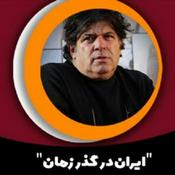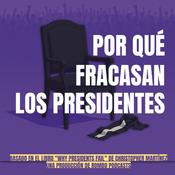Episodios disponibles
5 de 46
- Inside the ‘Impossible’ Deal That Averted an Environmental Disaster in YemenFor decades, the FSO Safer had been used to store oil off the coast of Yemen. But when the Houthis took control of the capital city of Sanaa in 2014, the government-owned tanker was suddenly located in Houthi-controlled territory. The tanker fell into disrepair, and by 2022, there was a real concern that the vessel could sink, releasing more than a million barrels of oil into the Red Sea. David Gressly was the U.N. humanitarian coordinator for Yemen, and his job was to provide support to the 13 million people who needed humanitarian assistance. But late one night, David got a call from his bosses in New York, asking him to do something many felt was impossible—getting the Houthis and the Yemeni government to agree on a plan to transfer the oil off the FSO Safer. The Negotiators is a podcast from Foreign Policy and Doha Debates—and a special partner this season, the International Peace Institute.--------37:14
- How 193 Countries Agreed on the Crime of AggressionWhen the International Criminal Court was established in 1998, the crime of aggression was identified as the supreme international crime. But countries couldn’t come to an agreement on how the crime would be defined or how the court would exercise its jurisdiction. There simply wasn’t enough time. Those questions were revisited 12 years later, in Kampala, Uganda. Host Femi Oke talks to Zeid Ra’ad Al Hussein, the chair of the working group on the crime of aggression, about how he used time pressure and a pep talk from legendary Nuremberg prosecutor Ben Ferencz to bridge political divisions among the negotiating parties and help them reach consensus. The Negotiators is a podcast from Foreign Policy and Doha Debates—and a special partner this season, the International Peace Institute.--------40:29
- Coming Soon: The Negotiators Season 5The Negotiators is back with a new host and all new stories from some of the world's most dramatic negotiations. Journalist Femi Oke takes us behind the scenes at a luxury resort in Uganda, as government representatives gather to establish the International Criminal Court's jurisdiction to prosecute leaders for unjust wars. We'll go scuba diving through endangered coral reefs in the Red Sea with the environment minister of the Maldives, as she attempts to sway US Climate Envoy John Kerry. And we'll take a peek inside the negotiations for the ceasefire between Israel and Hamas that ended the war in Gaza – with one of the Qatari officials who helped make it happen.The Negotiators returns December 1, from Foreign Policy and Doha Debates -- and our special partner this season, the International Peace Institute.--------2:23
- The Afghan Impasse, Part 7: Talking to the TalibanSince taking power, the Taliban have cracked down on human rights and deprived Afghan women and girls of fundamental freedoms. The outlook for productive engagement is dim. Yet there may have been a window, in the early months after the fall of the republic, to do things differently. Researcher Ashley Jackson speaks to aid workers and activists involved in direct negotiations with the Taliban as well as representatives from the U.S. and Taliban governments. And she takes a look at two intertwined questions: What might have been done differently then? And what should, or could, be done now?--------29:07
- The Afghan Impasse, Part 6: Digital DunkirkOnce it became clear that U.S. troops were leaving Afghanistan, the situation on the ground turned to panic. In August 2021, radio reporter Shirin Jaafari found herself in the middle of the effort to find safe passage for Najiba Noor, a 27-year-old Afghan policewoman who was the target of threats and harassment by the Taliban. For this episode, Shirin reconnects with Noor and speaks with other people directly involved in Digital Dunkirk—a mostly online, grassroots effort to help vulnerable Afghans get to safety.--------36:40
Más podcasts de Historia
Podcasts a la moda de Historia
Acerca de The Negotiators
Conflicts don’t just get resolved on their own. Most are resolved through a grueling process of give and take, usually behind closed doors. On the podcast The Negotiators, Doha Debates is partnering with Foreign Policy to put listeners in the room. Each episode features the mediators behind the world's most challenging negotiations. You’ll hear about a nuclear standoff, a hostage crisis, a gang mediation, and much more -- successes and failures that shaped people’s lives.
Sitio web del podcastEscucha The Negotiators, HISTORIAS DE LA HISTORIA y muchos más podcasts de todo el mundo con la aplicación de radio.net
Descarga la app gratuita: radio.net
- Añadir radios y podcasts a favoritos
- Transmisión por Wi-Fi y Bluetooth
- Carplay & Android Auto compatible
- Muchas otras funciones de la app
Descarga la app gratuita: radio.net
- Añadir radios y podcasts a favoritos
- Transmisión por Wi-Fi y Bluetooth
- Carplay & Android Auto compatible
- Muchas otras funciones de la app

The Negotiators
Escanea el código,
Descarga la app,
Escucha.
Descarga la app,
Escucha.





































